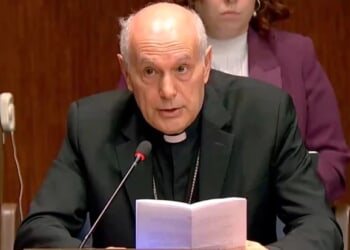In 1795, Immanuel Kant wrote a book titled Perpetual Peace just prior to the outbreak of the Napoleonic Wars. More than a century later, Norman Angell wrote The Great Illusion, which argued that great power wars were becoming obsolete, just prior to the outbreak of World War I. H. G. Wells and Woodrow Wilson described World War I as “the war to end all wars,” when in fact it was the prelude to what Raymond Aron accurately called The Century of Total War. When the Cold War ended, President George H. W. Bush spoke of a “new world order,” while Francis Fukuyama wrote that we were at The End of History, yet the 21st century has experienced lengthy wars in Afghanistan and Iraq, a Global War on Terror, the Russia-Ukraine War, and warfare between Israel and its enemies in the Middle East. Yet the quest for permanent solutions continues — most recently in proposals for regime change in Iran, which, according to Sen. Lindsey Graham, will result in permanent peaceful relations between Israel and the Muslim world.
There is obviously something within the human spirit that longs for a permanent global peace, but that quest is an illusion, a mirage that enters our sight only to disappear in the ashes of war. Henry Kissinger, a brilliant scholar of world history who saw firsthand the tragic side of human nature as a refugee from Hitler’s Germany whose family members died in the Holocaust, as a soldier in the U.S. Army during the Second World War, and as a national security adviser and diplomat during the Cold War, tried repeatedly to educate the American people about the realities of international politics. In one speech in 1976, Kissinger told his audience that “there are no easy or final answers” in global affairs; that the reach of American power “has its limits”; and that “what is attainable at any one moment will inevitably fall short of the ideal.”
Kissinger’s message, which he repeated in other speeches and in his remarkable memoirs and his erudite and scholarly books on history and international relations, is not a comforting one. Americans are by nature problem solvers, and idealism has historical roots in American diplomacy at least since Woodrow Wilson’s presidency. But Kissinger told his countrymen that any “solutions” in global politics were only temporary; that very often victory is followed by defeat; that jubilation often gives way to tragedy; that peace is never permanent. He also said that values and ideals take a back seat to interests in foreign policy. His book Diplomacy ranks with Hans Morgenthau’s Politics Among Nations and Nicholas Spykman’s America’s Strategy in World Politics as the best analyses of the true nature of international politics.
The longing for permanent solutions to international conflicts leaves its believers unsatisfied and causes them to search for new ways to achieve their idealistic goals: world government; international institutions like the League of Nations and the United Nations; global governance schemes like those put forward by the World Economic Forum; nation-building schemes championed by neoconservatives. The promoters of such solutions are the intellectual disciples of Kant, Angell, and Wilson, who reject the realism of Morgenthau, Spykman, and Kissinger. They wage wars on “terror” and attempt to democratize the world. They think they can reshape or transform old cultures — even ancient cultures — into America’s image. They, in the words of John Quincy Adams, “go abroad in search of monsters to destroy.” Their idealistic schemes, though well-intentioned, usually do more harm than good. Their fingerprints are all over the deepening U.S. involvement in the Israeli-Iran War. So far, the only thing stopping them from escalating that war — and the war in Ukraine — is the realism of President Trump.
READ MORE by Francis P. Sempa:
Let’s Hope Trump’s ‘Spectacular Military Success’ Is Not Bush’s ‘Mission Accomplished’




![Man Arrested After Screaming at Senators During Big Beautiful Bill Debate [WATCH]](https://www.right2024.com/wp-content/uploads/2025/06/Man-Arrested-After-Screaming-at-Senators-During-Big-Beautiful-Bill-350x250.jpg)












